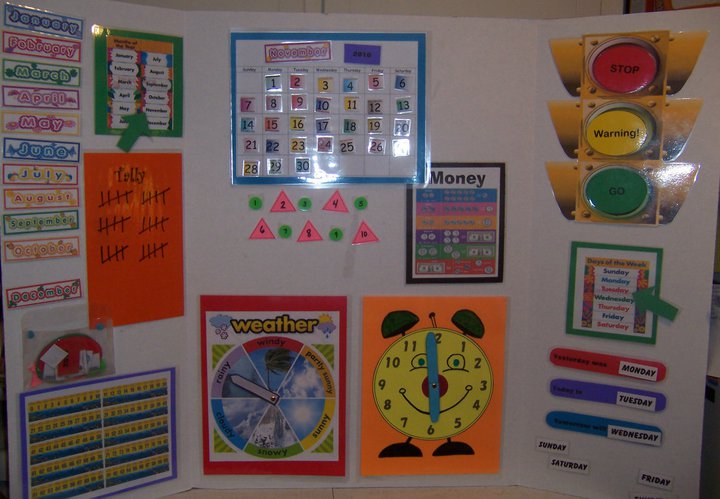Editor's note: Sonja Corbitt's advice to prospective home schoolers is so thorough, we're dividing it into two parts! Stop by next Tuesday for Part 2 of Sonja's FAQs on Home School Practicum. --Barb
There was a time I vociferously maintained that everyone should home school. I was ignorant and immature.
Homeschooling is not for every mom or every family, but when faced with the success of home schools and the profound privilege of educating one's own child, some parents become interested in the possibility of home education. For our family, it was the single best parenting decision we ever made.
[Tweet "Considering #homeschooling? Read Sonja Corbitt's FAQ on the nuts and bolts of home education."]
But what are the everyday nuts and bolts? How do you do it? Here are the answers to some Frequently Asked Questions regarding home schooling.
What about socialization? Since it is always the first question "inquiring minds" want to know, this is surely the most important function of institutional school. Homeschoolers are rarely asked how they will teach kids to read, solve equations, or use the scientific method, so presumably they can be trusted to convey these important skills. For our family, the “socialization” issue was primary; we wanted our kids socialized differently than what we saw in our local schools.
For instance, after a whole-school assembly, our oldest came home from kindergarten asking how you get AIDS from sex. Later that kindergarten year, he was almost suspended for carrying around an unexploded bullet he had been given by another student. Our public-school system is consistently in the top five in the state for drug use and pregnancy.
Private schools seemed to simply conceal many of the same root issues under a veneer of achievement and affluence. We wanted a classical education with strong religious formation for our kids, and that was unavailable.
Why do you homeschool? Language barriers, second or third language interests, pure history and primary source learning, classical education preferences, socialization, religious education, special needs, resistance to teaching methods that conform to standardized tests rather than individual children, accelerated or slow learning, specialized education or interests, trauma or tragedy, bullying, lack of affordable or quality public or private education, physical or other handicaps, resistance to political or social indoctrination, one-on-one instruction – there are as many reasons as families.
Isn't the education level of homeschooling inferior? Two decades of empirical evidence show that the exact opposite is true. Homeschool student achievement test scores are consistently above those of institutional school counterparts, public and private. One-on-one instruction is the most effective form of teaching. No matter how capable a government or private school teacher is, he cannot provide daily one-on-one instruction.
Is it legal? Although laws and regulations differ from state to state, homeschooling is legal in all 50 states.
How do home school kids play sports? Many home schoolers are part of umbrella schools that coordinate standardized testing, keep track of records, and provide a variety of competitive sports teams. In addition, Catholic schools, especially those affiliated with parishes, often seek home schoolers for their teams. My oldest son, who is in college now, played basketball for years with a local co-op.
Can home schoolers get into college? Many excellent universities court home schoolers and develop admissions requirements specifically for them. SAT or ACT test scores and transcripts of completed work are usually required; beginning early in 9th grade, parents should take detailed notes and begin researching the application requirements for the schools their student is considering. Most universities accept any student with 12 community college credits.
How do you teach the higher maths and sciences? Among the resources available are: purchased curriculum with teaching videos, correspondence courses, co-ops or cottage schools with other home school parents in the area, local community college, tutors or tutorials, and online classes.
How do you afford all the different home school materials? On average, most home school families spend between $300 - 600 per year. Between Amazon.com used books, the local library, public school resource centers, eBay, and Craigslist, many never spend more than $200 for an entire year of curriculum. This is far less than the special fees, supplies, uniforms, tuition and other costs of institutional schools. Each year, you might plan to buy one expensive item, such as a good quality microscope. Consider your most important needs and buy those first, remembering that multi-level curricula often saves you money over the years.
How do you know how they're doing? How do you know if your child is healthy on a daily basis? Parents who are intimately involved with their children every day are aware of the weaknesses and strengths of each individual student. When home schooled children struggle with a concept or technique, parents are available to offer concentrated, specialized help until they have mastered it. Standardized tests can be (arguably) a good barometer of basic achievement levels.
 Copyright 2016 Sonja Corbitt. All rights reserved.
Copyright 2016 Sonja Corbitt. All rights reserved.
What if my child's current school or teacher discourages homeschooling? Homeschooling can sometimes be off-putting for professional educators, some of whom have only ever seen failed or negative home school examples that do a dreadful disservice to children who thankfully return to the public arena. But it can also offend those who were educated under the current institutional system who feel home schooling is an indictment against public or private options; one necessarily feels some loyalty to any endeavor he spends the first half or more of his life pursuing. I don't take it personally.
Doesn't removing kids from the school system to teach them at home damage government schools? Although admittedly a simplistic answer, parents are regularly told that reducing class sizes increases the effectiveness of instruction; removing children from government schools reduces class size. Private schools also remove students from the public system. Finally, legalized abortion removes more children from institutional education than either.
Doesn't homeschooling children drain funding from government schools? Home schoolers pay taxes, yet do not use the public system. Therefore, they add to the funding pool without using the services.
What if I'm not a teacher? A significant proportion of home school parents are, in fact, teachers or former teachers, but oddly enough, studies show that children with conscientious parents who have never obtained a teaching certificate actually do better on standardized tests than those of parents who have. Many teachers report that the environment and philosophy of the home school is so vastly different that they regard their training as more of an impediment than a benefit.
How do home schoolers get the special opportunities that public school children get? Home education offers children an education uniquely tailored to ability, skill, interests, and need. The enrichment possibilities are literally infinite, and the flexibility inherent in home education provides abundant time to concentrate on special needs or prodigious abilities or interests. Home schooled kids don’t get all the special opportunities of public or privately schooled kids, but they are afforded their own unique opportunities.
For instance, when he was twelve, my oldest displayed keen interest in history after genealogy work with his grandmother, and joined several local historical societies. Soon after, he began giving costumed, guided tours at two local historical sites. Even now he drives the horse and buggy and does the lawn maintenance at these locations as he attends college for a degree in historical preservation.
Won't I be tied to my home? One of the greatest perks of home education is its flexibility. A broken leg is no obstacle to (or excuse from) education in a home school. Accidents or handicaps, inattentiveness or hyperactivity, physical, mental, or emotional challenges can all be effectively addressed on a daily, hourly basis, whether during formal instruction time or unstructured learning. Although structure is almost always necessary for home school effectiveness, field trips, doctor's appointments, vacations, grading, and planning are all done at the family's convenience rather than an institution's.
How do you to teach multiple children at once? While one student works on math, another works on handwriting. Children are taught to work independently and save questions until the parent is free to attend to them. Some subjects are easily taught to the whole group, even when they are at different levels - science and history, for instance. Preschoolers love listening in, and clamor to "do school" when they see older siblings working.
What if I don't have the patience? We are adults; we practice and model patience with our kids. For Christian parents, children and family are the path to sanctity. No one always has enough patience. Parents often find that they are learning this important social skill along with their children, and that they have about same level of patience with school work that they typically have with children, or house or yard work. Love teaches patience.
Next Tuesday, I'll answer more questions on choosing a curriculum, fitting in home schooling with a working parent's schedule, and more!
Fellow home schoolers, your sisters want to know: What are your homeschooling hints, tricks, nightmares, and joys?
Copyright 2016 Sonja Corbitt
About the Author
Sonja Corbitt
Sonja Corbitt is the Bible Study Evangelista, a Catholic Scripture teacher with a story teller’s gift – a Southern Belle with a warrior’s heart and a poet’s pen. Catch her newest study series on Healing the Father Woundnow. . What's an "evangelista"? Find out at biblestudyevangelista.com . Instagram | Pinterest



.png?width=1806&height=731&name=CatholicMom_hcfm_logo1_pos_871c_2728c%20(002).png)
Comments